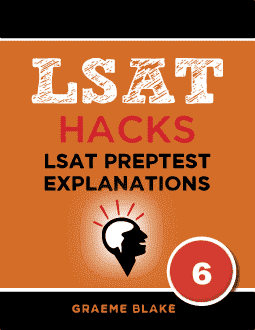QUESTION TEXT: J. J. Thomson, the discoverer of the electron and a recipient…
QUESTION TYPE: Necessary Assumption
CONCLUSION: The skills needed for creative research can be taught and learned.
REASONING: J.J. Thompson trained many physicists who won prestigious prizes.
ANALYSIS: Is this a good argument? “Most people who graduate from Harvard are smart. Therefore Harvard makes people smart.”
It isn’t a good argument, because Harvard is in the business of only admitting people who are already smart.
J.J Thompson may only have trained creative people. It is a necessary assumption that he trained at least some uncreative people.
___________
- This tells us why students studied with J.J. but it has nothing to do with creativity.
- This isn’t necessary. It’s only necessary that at least some scientists learned creativity from J.J.
- CORRECT. If every scientists already was a creative researcher then J.J. can’t have taught them the necessary skills for creativity.
- This could be true but it isn’t necessary. It’s only necessary that physics requires some sort of creativity.
- Do those science classes make them creative? This stimulus is about creativity. Science is only used as an example.
Recap: The question begins with “J J Thomson, the discoverer of the electron and a recipient”. It is a Necessary Assumption question. Learn how to master LSAT Necessary questions on the LSAT Logical Reasoning question types page.


Leave a Reply